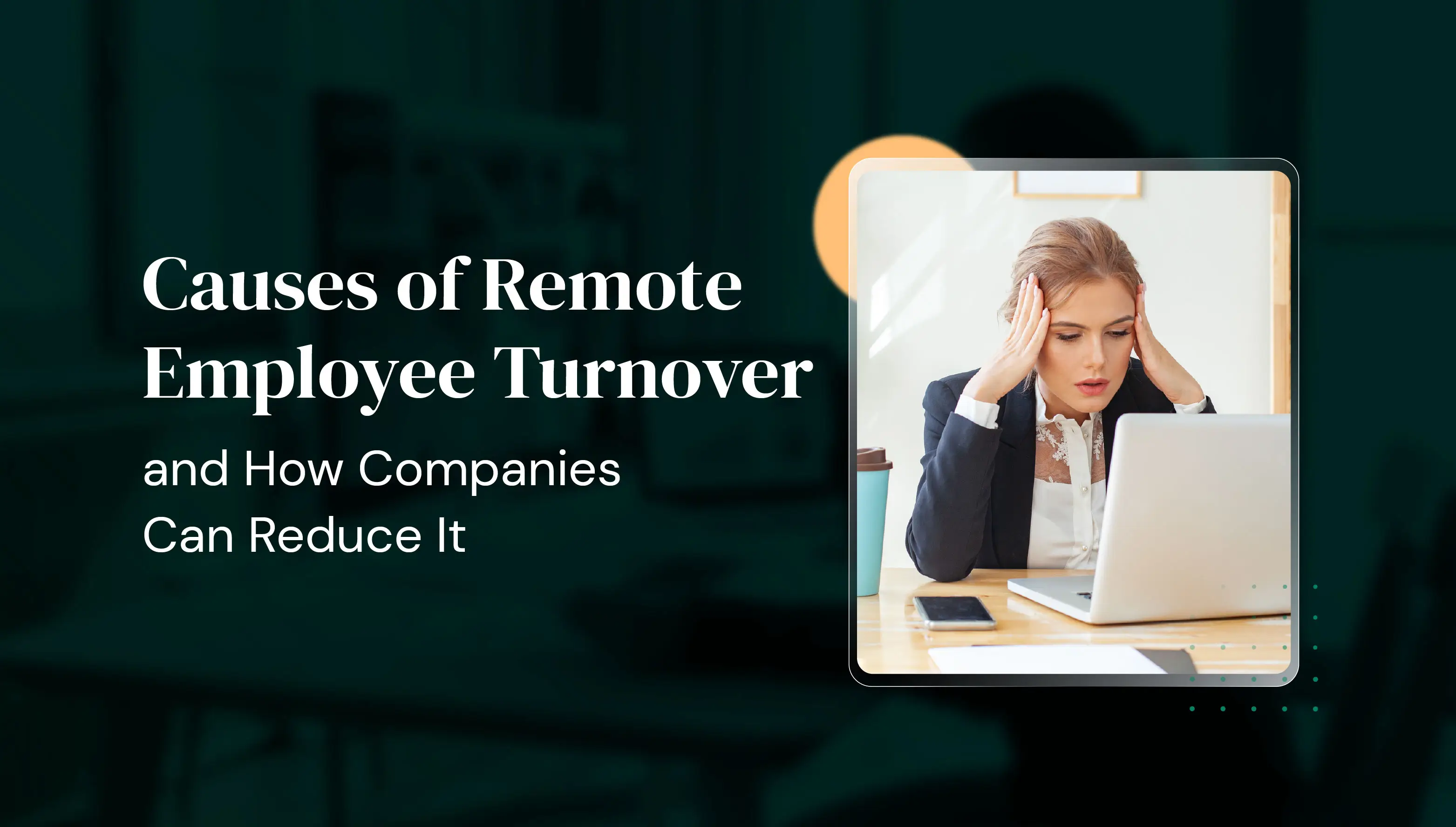I was recently contacted by a mid-sized marketing agency that was struggling with a new account manager hire. The person had an impressive client roster and a stellar creative portfolio, but they were constantly behind on deliverables and overwhelmed by competing deadlines. Client relationships were starting to fray, and internal teams were scrambling to cover missed commitments.
My task was to help the agency diagnose what went wrong and prevent it from happening again. It turned out the issue wasn't technical skill or industry knowledge – it was time management. The account manager simply didn't have the systems or habits to prioritize effectively under pressure. Ultimately, the agency had to replace the hire, which was an outcome that neither party wanted.
That experience reinforced my belief that time management isn't a soft skill you evaluate as an afterthought. It's often the hidden factor that determines whether someone thrives in a demanding role or becomes a costly bottleneck.
In modern remote and hybrid workplaces, employees manage complex workloads with less direct oversight. Hiring managers who evaluate candidates' ability to prioritize, handle interruptions, and deliver on time gain crucial insights into how that person will perform when the stakes are high. Assessing time management isn't just about efficiency; it's about protecting your team's momentum and ensuring your business runs at the right pace.
Essential "Time Management" Interview Questions
When I'm helping refine the interview process, one of the first things I emphasize is this: generic questions won't reveal how a candidate actually manages their time under pressure. While you should of course ask certain job interview questions, to assess time management skills effectively, you need targeted questions that dig into real behaviors, not just broad claims like "I'm very organized."
Here are some of the questions I've seen work well in uncovering whether candidates have the practical skills and the mindset to keep pace in demanding roles:
1. Prioritization and Planning
- How do you decide which tasks deserve your immediate attention when everything feels urgent?
- Can you walk me through a time you had to adjust your schedule or plan because of unexpected changes?
- How do you approach planning your week to ensure critical deadlines are met?
These questions help you spot candidates who think critically about trade-offs and who can adapt when priorities shift.
2. Handling Distractions and Interruptions
- Tell me about a time you were in the middle of focused work and got interrupted. How did you handle it?
- What strategies do you use to stay on track in a busy or noisy environment?
- How do you handle multiple people needing your help at the same time?
The goal here is to see how candidates protect their focus without alienating colleagues or clients.
3. Meeting Deadlines and Managing Workload
- Describe a situation where you had to deliver a project on a tight timeline. How did you approach it?
- Have you ever missed a deadline? What happened, and how did you handle it?
- How do you track progress when you're managing multiple projects at once?
Look for candidates who show both accountability and practical systems for managing their workload.

Evaluating Candidate Responses to "Time Management" Questions
It's one thing to ask strong time management questions, but it's another to know how to evaluate the answers. I've seen hiring managers nod along to well-spoken candidates who sound organized but reveal very little substance. The key is to listen for evidence, not just confident claims.
I always advise hiring managers to encourage candidates to answer using the STAR method: Situation, Task, Action, and Result. It forces candidates to share concrete details rather than vague generalizations.
For example, instead of accepting an answer like, "I'm good at prioritizing tasks," probe further:
Can you give me a specific situation where you had to choose between two critical priorities? What did you do, and what was the outcome?
When candidates provide a structured response, it's far easier to assess whether they've actually demonstrated time management skills in practice.
Next, identify effective time management traits. Strong time managers usually reveal certain traits in their answers:
- Proactive planning. Look for candidates who talk about mapping out tasks, using tools like calendars or project management apps, and anticipating potential roadblocks.
- Adaptability. The best time managers acknowledge that plans can change. They'll describe how they adjust priorities without losing momentum.
- Realistic self-awareness. Candidates with good time management skills admit when they've been overwhelmed in the past, and explain how they learned from it.
Listening for these traits helps separate candidates who simply say the right things from those who can actually execute when the pressure's on.
Common Pitfalls to Watch for When Assessing Time Management Skills
Even seasoned interviewers can stumble when evaluating time management skills. I've worked with teams who felt confident after interviews, only to discover the new hire was quickly overwhelmed once real-life pressures hit. It's a costly mistake, especially in fast-moving environments where every hour counts.
Here are some of the most common pitfalls I see and how to avoid them:
Accepting Vague Responses
Candidates often say things like "I'm great at multitasking" or "I'm very organized," but these surface-level claims aren't enough. They're easy for anyone to say, whether or not they reflect reality.
How to avoid it:
- Probe for examples, such as: "Tell me about a time you had too many priorities competing for your attention. How did you decide what to focus on first?"
- Listen for specific details about tools, processes, and measurable outcomes.
- Pay attention to timelines. Genuine examples usually include clear sequences of events, not just broad descriptions.
Equating Busyness with Productivity
Some candidates proudly describe themselves as "always busy," but constant activity doesn't equal effective time management. Busyness can hide disorganization, poor prioritization, or an inability to delegate.
How to avoid it:
- Ask how candidates decide what not to do.
- Look for mentions of focusing on high-impact work rather than simply filling their schedule.
- Be cautious if candidates emphasize working long hours as their main solution to heavy workloads.
Mistaking Multitasking for Efficiency
Multitasking often sounds impressive in an interview, but research consistently shows it can reduce quality and increase the time needed to complete tasks. Candidates who say they juggle many things at once may be less efficient than those who focus deeply on one priority at a time.
How to avoid it:
- Ask for examples of when multitasking worked well and when it didn't.
- Probe how they maintain quality and accuracy while switching tasks.
- Listen for strategies like time blocking, batching similar tasks, or using checklists to stay focused.
Overlooking Nonverbal Cues
Evaluating time management skills isn't just about what candidates say; it's how they say it. Candidates who struggle to describe how they organize their workload may hesitate, ramble, or contradict themselves.
How to avoid it:
- Observe whether answers follow a logical sequence.
- Look for a balance of confidence and realism. Strong candidates admit past challenges and explain how they've improved.
- Note any discomfort or evasiveness when discussing deadlines, workload, or past mistakes.
Assuming Seniority Equals Time Management
Another subtle trap is assuming that more experienced or senior candidates automatically possess strong time management skills. Even highly skilled professionals can struggle to manage competing demands effectively.
How to avoid it:
- Don't skip behavioral questions for senior hires.
- Ask about recent, specific examples, not just general philosophies.
- Remember that senior roles often involve more complex time management challenges, making this line of questioning even more important.

Incorporating Time Management Assessment into Your Hiring Process
Time management skills shouldn't be left to chance in your interviews. One pattern I've noticed in helping managers refine their hiring processes is that they often assume a candidate's previous success automatically means strong time management. But unless you build it deliberately into your process, it's easy to overlook.
Here are practical ways to weave time management evaluation into your hiring workflow:
Design Targeted Interview Questions
Start by including specific questions about how candidates plan, prioritize, and handle competing demands. Avoid broad questions like, "Are you organized?" Instead, ask for examples of how they navigated shifting priorities or tight deadlines.
Use Practical Scenarios or Exercises
Consider giving candidates a hypothetical workload or a brief task prioritization exercise. For example:
"Imagine you're handling these five tasks, all due by the end of the day. Walk me through how you'd approach them."
This reveals how they think under time pressure and whether they have a logical, systematic approach.
Observe Process, Not Just Outcomes
Listen carefully to how candidates describe their approach to managing tasks. Are they methodical and proactive, or reactive and scattered? Even if the outcome was successful, a disorganized process could signal potential trouble in a high-demand environment.
Factor Time Management into Reference Checks
When checking references, ask specific questions such as:
"How did they handle multiple projects or tight deadlines?"
"Were there ever concerns about their follow-through or workload management?"
These questions can surface red flags that interviews alone might miss.
Bringing It All Together: Leveraging Recruitment Expertise
Assessing time management skills sounds straightforward, but in practice, it's nuanced. I've worked with many hiring managers who excel at spotting technical talent yet feel less confident probing behavioral skills like time management. That's where recruitment partners can make a significant difference.
Good recruiters bring a trained eye for the subtle signals that indicate whether a candidate can truly handle complex workloads and shifting priorities. They've interviewed thousands of candidates and know how to push past rehearsed answers to uncover genuine work habits.
At Somewhere, for example, we've developed frameworks for evaluating time management that go beyond standard interview questions. We help clients craft tailored assessments, identify red flags early, and ensure new hires won't become bottlenecks under pressure. Whether it's incorporating practical scenarios into interviews or knowing the right follow-up questions to ask, experienced recruiters can save you significant time and help you avoid costly misfires.
Partnering with experts means you're not just filling roles; you're building teams that can operate efficiently even in high-growth or high-stress environments. If time management is critical for your next hire, working with a recruiter who knows how to assess it deeply can be the difference between hiring someone who merely keeps up and someone who helps your business accelerate.









.jpeg)
.jpeg)

.webp)

.webp)